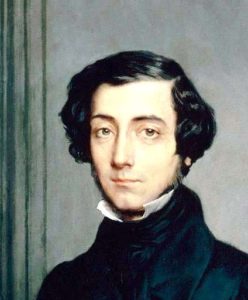If you’ve been online lately, you’ve seen the conversations, advertisements, and excitement over the latest installment of the Marvel Cinematic Universe. With domestic box office totals at $6,869,613,146 and an average of $343,480,657 per movie at the time of this post, it certainly seems like America loves her heroes.
But that love is for the heroes in the cinematic world. What of our real world? What heroes do we celebrate? What is happening to America’s perspective of those we once revered as heroes?
If you ask an American to name some American heroes, you might hear some names like George Washington, Thomas Jefferson, Abraham Lincoln, Benjamin Franklin, Martin Luther King Jr., Harriett Tubman, John F. Kennedy, Paul Revere, Ronald Reagan, and others. In recent years, with the help of advances in technology, the exchange of information has led to the rise of the dilution of facts and the dismantling of truth. “Fake News,” it is called. And America’s heroes have not been exempted from it.
What is a hero?

Webster’s 1828 Dictionary contains the foundation of America’s heritage and principal beliefs. It is contemporary with the American Constitution.
Noah Webster’s American Dictionary of the English Language defined a hero as “a man of distinguished valor, a great, illustrious, or extraordinary person.” As for valor, Webster defined it as “strength of mind in regard to danger; that quality which enables a man to encounter danger with firmness; personal bravery; courage; intrepidity; prowess.” Extraordinary, Webster defined as “special; particular; sent for a special purpose, or on a particular occasion.”
When we look to America’s past, we see men and women who fit Webster’s description. Men and women who, for their particular occasion and for a special purpose, possessed strength of mind, bravery, courage, fearlessness, and gallantry. These men and women possessed character traits that shaped our nation and set her course.
What happens, though, when our heroes’ stories are not told, the facts are watered down, or someone once revered a hero is singled out to further a political agenda? Do we go along with the dismantling of a hero, or do we seek and speak the truth? Will we defend America’s heroes as passionately as we would defend our cinematic heroes?
To answer these questions, let’s look back to our roots—to the founding of our nation.
Why was America Founded?
It is no fantasy that our earliest foreparents tied their hopes, aspirations, and dreams to the glory of God and the advancement of the Christian faith. This is evident in the 1606 First Virginia Charter, The Mayflower Compact, and in the copious documents, letters, and journals that followed. The early visionaries took this seriously as evidenced by the sober words pronounced by John Winthrop, in his most famous thesis, A Model of Christian Charity, written aboard the Arbella, 1630. To prepare the passengers of the Arbella to plant a new society in an uncivilized land, Winthrop reminded them what was at stake:
“For we must consider that we shall be as a city upon a hill. The eyes of all people are upon us. So that if we shall deal falsely with our God in this work we have undertaken, and so cause him to withdraw his present help from us, we shall be made a story and a by-word through the world.”
As author Eric Metaxas writes of John Winthrop and his fleet of settlers in his book, If You Can Keep It: The Forgotten Promise of American Liberty, “They understood that freedom was not merely the freedom to be left alone; it was the freedom to do what was right. Freedom was a gift from God and they must use it for his purposes…Winthrop was reminding them that God would hold them responsible for how they behaved…”
The legacy was carried to the time of the Patriots, for we hear similar cries from our forefathers. John Adams, in a letter to Zabdiel Adams dated June 21, 1776, stated:
“Statesmen, my dear Sir, may plan and speculate for Liberty, but it is Religion and Morality alone, which can establish the Principles upon which Freedom can securely stand….”
Again, in a letter to the Massachusetts Militia in 1798, John Adams reminds his audience of the dangers of unbridled human passions:
“Our Constitution was made only for a moral and religious people. It is wholly inadequate to the government of any other.”
And from George Washington, in his farewell address in 1796:
“Of all the dispositions and habits which lead to political prosperity, religion and morality are indispensable supports… The mere politician, equally with the pious man, ought to respect and to cherish them. A volume could not trace all their connections with private and public felicity.”
Why is America Exceptional?
America was first called “exceptional” by Alexis de Tocqueville, a French sociologist and political theorist, who came to the United States in 1831 to study its prisons. From his travels, he arranged his observations into a work titled Democracy in America. De Tocqueville said, that the position of Americans was “quite exceptional, and it may be believed that no democratic people will ever be placed in a similar one.”
Interestingly, the term “American Exceptionalism” was first coined by 20th-century Communist-dictator Joseph Stalin as a rebuke for the lack of interest in the American working class in demanding revolution as a path to social equality.At first blush, one could deduct from de Tocqueville and Stalin’s statements that American Exceptionalism is simply comprised of position, privilege, politics, and circumstances. However, de Tocqueville echoed what America’s founders already knew to be true: that, “Liberty cannot be established without morality, nor morality without faith.”
From a conservative, Christian perspective, American Exceptionalism, however, is not a claim to perfection, nor is it about power or wealth or superiority, for as Jesus said, “Unto whom much is given, much is required.” American Exceptionalism – that which truly sets it apart from other nations–exists simply because our nation arose out the seedbed of biblical principles that were studied and embraced by our founders. The application of those biblical principles resulted in a harvest of individual and civil liberty, which has yet to meet its rival.
Where We Get Our Information Matters
In the wake of the politically correct, postmodern, multicultural tidal wave that has swept through our political institutions and government schools in recent years, ordinary Americans are beginning to awaken to threats that could forever alter the outcome of the great America Experiment, as it was called.
What should our response to these threats be? We must fearlessly ask pointed questions about the founders and the foundations of this nation and be prepared to search diligently for honest and verifiable answers. Was our nation simply the offspring of the European Enlightenment- the result of political evolution? Was the American Dream merely a wealth scheme perpetrated by greedy colonists seeking a means to their own personal aggrandizement? Were our so-called heroes men of selfish and unsavory motives? Or, was there a central, noble, and God-breathed purpose behind the establishment of the United States of America? Tough questions, but vitally important to answer for our survival. Just as many Americans can tell Captain America’s story, most Americans should be able to tell the stories of her real-life heroes.
Sadly, if one used contemporary sources to learn our heroes’ stories, one would find politically correct rationales and unfounded scenarios. It’s almost as if these power-elite know that the most effective way to destroy people is to deny and obliterate their understanding of their history. Over the years, the superficial and misleading treatment of America’s founding story and America’s heroes has taken its toll, producing apathy and even disdain among some of its citizens.
The Cost of Changing America’s History
It is, sadly, not uncommon to scan the news headlines and see people once lauded as heroes coming under fire. Just a glance yields headlines such as “Confederate Statues and Memorials to be Removed Across US,” “This is the Monster Celebrated on Columbus Day,” and “A Look at Thomas Jefferson’s Egregious Hypocrisy.”
Often, the foundation of these headlines and corresponding articles is faulty simply because they do not seek out primary sources for their basis of information gathering. This leads to misinformation and, often, assumption, as ultimately the reputations, accomplishments, and missions of historical figures suffer much damage, thanks to the heightened sensitivities accompanying a contemporary, politically correct perspective.
A Story Askew
Christopher Columbus is one example of this. Columbus, like all of us, was not perfect; he, like all of us, made plenty of mistakes and missteps along the way. But, what were his motives? What drove him? Where could we and should we find the answer to such a deeply personal question? Should we consult modern historians and pundits? Would they be able to reveal the underlying vision and intention that compelled Columbus to sail westward? How could we know what Columbus was thinking?
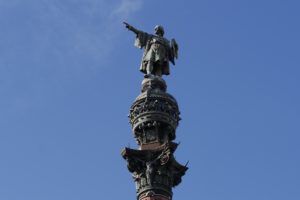
Christopher Columbus kept several journals of his voyages including “Book of Prophecies” which is in print today.
Well, did you know that the personal journal of Columbus has been preserved intact? We can, indeed, understand his goals and thoughts simply by reading his journal. To see what drove Columbus and what Columbus’s motives were, let’s look inside his journal and see what he says:
“At this time I have seen and put in study to look into all the Scriptures, cosmography, histories, chronicles and philosophy and other arts, which our Lord opened to my understanding (I could sense his hand upon me), so that it became clear to me that it was feasible to navigate from here to the Indies; and he unlocked within me the determination to execute the idea….All those who heard about my enterprise rejected it with laughter, scoffing at me.”
In a time when many people thought it impossible, Columbus used his God-given wisdom to attempt to navigate a way to the Indies, and, despite the mockery from his countrymen, proceeded to undertake what was seen as an impossible endeavor. From his journal, we see his desire to serve the Lord and his understanding of the Scriptures. There is evidence that Columbus personally treated the natives with respect and kindness “that they may become Christians.” While there is evidence of ungodly intent and behavior by some of those who accompanied Columbus and others to the New World, Admiral Columbus strove to treat the native inhabitants that he encountered with Christian regard. As a devout Christian and student of the Bible, he was on a mission that transcended the material gain for which he, and his benefactors, also hoped.
A Story Untold
Nathan Hale, a soldier and spy for America during the Revolution, is most famous for his (often debated) last words: “I only regret that I have but one life to lose for my country.”
At only 21 years old, Nathan Hale understood what it meant to love his country. Upon undertaking an intelligence-gathering mission for General George Washington, Hale was captured by British soldiers and hanged without trial for treason. How did one so young gain such fervor for his country that he should be willing to die for it, and, if he could have, more than once? We know from the words of Nathan’s fellow soldier, Lieutenant Elisha Bostwick, that Nathan was a Godly man, endowed with intelligence and compassion. Bostwick writes, “his mental powers seemed to be above the common sort—his mind of a sedate and sober cast, & he was undoubtedly Pious; for it was remark’d that when any of the soldiers of his company were sick he always visited them & usually Prayed for & with them in their sickness.” Following his untimely death, two ballads were written about him and circulated through Washington’s army as Nathan was regarded the first hero of the Continental Army. There are now at least 16 statues and memorials to Nathan across our country with dozens more namesakes in his honor. As Eric Metaxas said in his book If You Can Keep It, “Heroes inspire us, and whenever our nation has faced a crisis, it has fallen to poets and sculptors and painters and songwriters and later, filmmakers too, to rally the nation to its feet, to inspire the young men and women of the nation to do what they must.” But, how many of us have heard Nathan Hale’s tale? If not many, it causes one to wonder, of how much more of our precious American history are we, as a nation, largely unaware?
A Story That Cannot Be Ignored
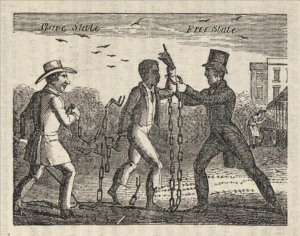
Allegorical illustration of a slave’s transition to liberty as he escapes his owner and is embraced by an Abolitionist in a Free State. Engraving taken from the book, ‘Narrative of the Life and Adventures of Henry Bibb, An American Slave’, 1849. Public Domain.
Ratified on December 6, 1865, the Thirteenth Amendment abolished slavery in the United States. To many Americans then and now, this was 89 years too late. It is true that while our nation was built on the statement that “All Men Are Created Equal,” our nation did not immediately render slavery illegal. Many consider slavery to be America’s “original sin.” This warrants the question: Can bad events in America’s history be put to good use?
Across the Southern states, statues, monuments, and memorials are being removed. Cited as perpetuating racism, these once-honored markers have become sites of vandalism, riots, protests, and political uprisings.
Many Confederate monuments in the South were erected by southern heritage groups during America’s reconstruction. While the stature of these historical statues has shifted since their erection, the historical context and how we understand it today can impart understanding and important lessons from our country’s past.
Educating American citizens on their history—the good, the bad, and the ugly—can create a shift in the aspects of our history that we emphasize. Former First Lady, Michelle Obama, in a speech at the 2016 Democratic National Convention, stated, “…the story of this country, the story that has brought me to this stage tonight, the story of generations of people who felt the lash of bondage, the shame of servitude, the sting of segregation, but who kept on striving and hoping and doing what needed to be done so that today I wake up every morning in a house that was built by slaves.” Her acknowledgement of the White House’s history and America’s history reminds us that, despite our history of slavery and segregation, America moved forward to the point where Michelle lived in the White House as First Lady. This gentle reminder reveals just how far America has come since her founding.
A Story Changed for Political Purposes
Will we let American history and the stories those who built our nation and fought for liberty be dismantled? Letting America’s identity be stolen is, simply put, identity theft. Returning to primary sources enables us to avoid politically correct rationales and debunk the myths and unfounded scenarios that have begun to permeate our culture. Why? Because a primary source provides us with firsthand evidence. Primary sources are invaluable because they include documents, eyewitness accounts, statistical data, writings, speeches, and art from the time in question. If we desire to handle America’s founding story and our American heroes’ stories with care, we must consult sources compiled in the time in which our heroes lived. It was Rev. A. W. Foljambe who stated, “The more thoroughly a nation deals with its history, the more decidedly will it recognize and own an over-ruling Providence therein, and the more religious a nation will it become; while the more superficially it deals with its history, seeing only secondary causes and human agencies, the more irreligious will it be.”
What Do America’s Founding and American Exceptionalism Have to Do with America’s Heroes?
America’s history and heroes are worthy of defense, just as we defend our cinematic icons. Why? Because, contrary to what culture may say, America is not exceptional because of its achievements.
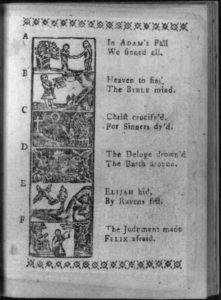
A page from The New England Primer Improved, 1773. Early American students used this primer and the Bible as their primary textbooks. Image provided by the Library of Congress [Public domain]
Just as it was for the nation of Israel, if we choose to barter away the liberty provided to us by the Constitution, we will find ourselves enslaved. So, America is not exceptional simply because we as Americans think it is— America is exceptional because the gospel is exceptional. America’s heroes are exceptional for one reason alone—they brought the gospel West and established a nation built upon its principles.
Can the Gospel Really Change a Nation?
While we, as believers, understand the power of the Gospel, it is not always easy for those who don’t share our faith to see the power the Gospel has over a nation. In January of 2014, Christianity Today published an article titled “The Surprising Discovery About Those Colonialist, Proselytizing Missionaries.“ Written by Andrea Palpant Dilley, the article chronicles the research of sociologist Robert Woodberry who studied the statistical link between democracy and Protestantism. Woodberry and his team spent 14 years amassing statistical data and performing statistical analysis to reach one stunning conclusion—Areas where Protestant missionaries had a significant presence in the past are, on average, more economically developed today, with comparatively better health, lower infant mortality, lower corruption, greater literacy, higher educational attainment (especially for women), and more robust membership in nongovernmental associations.
If Protestant missionaries were able to have this kind of impact on democracy in established nations, imagine how a nation built off these beliefs would change the world!
Cultural influencers, sadly, have guilted Americans simply for being American. Often, the basis is to further an agenda or because of the poor behavior of a prominent leader or figure. But, as we know, one person’s behavior does not caricature what it truly means to be American. If America is truly the “land of the free and the home of the brave” it is because it is defended by people who understand this freedom. If there is a defense against the unjust and corruption, it is because there are people who believe in truth and honesty.
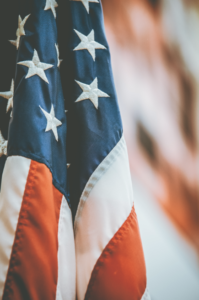 Arguments that stem from America not always living up to her ideals do not mean that Americans are hypocrites. It means Americans are human. When the odds were against our cinematic heroes (the Avengers) they did not give up. They fought for what was good, right, and true. Americans must do the same. We humbly acknowledge that we can make mistakes but still pursue what is right, remedy the wrong, and bring about restoration. De Tocqueville said it best when he stated, “The greatness of America lies not in being more enlightened than any other nation, but rather in her ability to repair her faults.” Just as Captain America often struggles to maintain his ideals, so do we. But, Captain America remains a highly respected figure in his community. So can we. For Christians in America and around the world that’s our goal, for we’ve been given a higher calling: “All this is from God, who reconciled us to himself through Christ and gave us the ministry of reconciliation” (II Corinthians 5:18).
Arguments that stem from America not always living up to her ideals do not mean that Americans are hypocrites. It means Americans are human. When the odds were against our cinematic heroes (the Avengers) they did not give up. They fought for what was good, right, and true. Americans must do the same. We humbly acknowledge that we can make mistakes but still pursue what is right, remedy the wrong, and bring about restoration. De Tocqueville said it best when he stated, “The greatness of America lies not in being more enlightened than any other nation, but rather in her ability to repair her faults.” Just as Captain America often struggles to maintain his ideals, so do we. But, Captain America remains a highly respected figure in his community. So can we. For Christians in America and around the world that’s our goal, for we’ve been given a higher calling: “All this is from God, who reconciled us to himself through Christ and gave us the ministry of reconciliation” (II Corinthians 5:18).
Perhaps the most famous of de Tocqueville’s quotes is this: “America is great because she is good, and if America ever ceases to be good, America will cease to be great.”
Because of the work of those who went before us, men and women with ideals, morals, and flaws, but heroes nonetheless, Americans enjoy the blessings of liberty. May we thoroughly deal with our history, our heroes’ stories, and recognize the over-ruling Providence that has brought us thus far.
This article originally appeared in Awaken Magazine (Volume 8. No. 1 Fall 2018), a publication of Dayspring Christian Academy. To download a copy of Awaken, click here. If you would like more information about Dayspring Christian Academy, please register for a private tour using the button below. Alternatively, you can call Karol Hasting at 717-285-2000 with your questions or to set up a personal tour.


